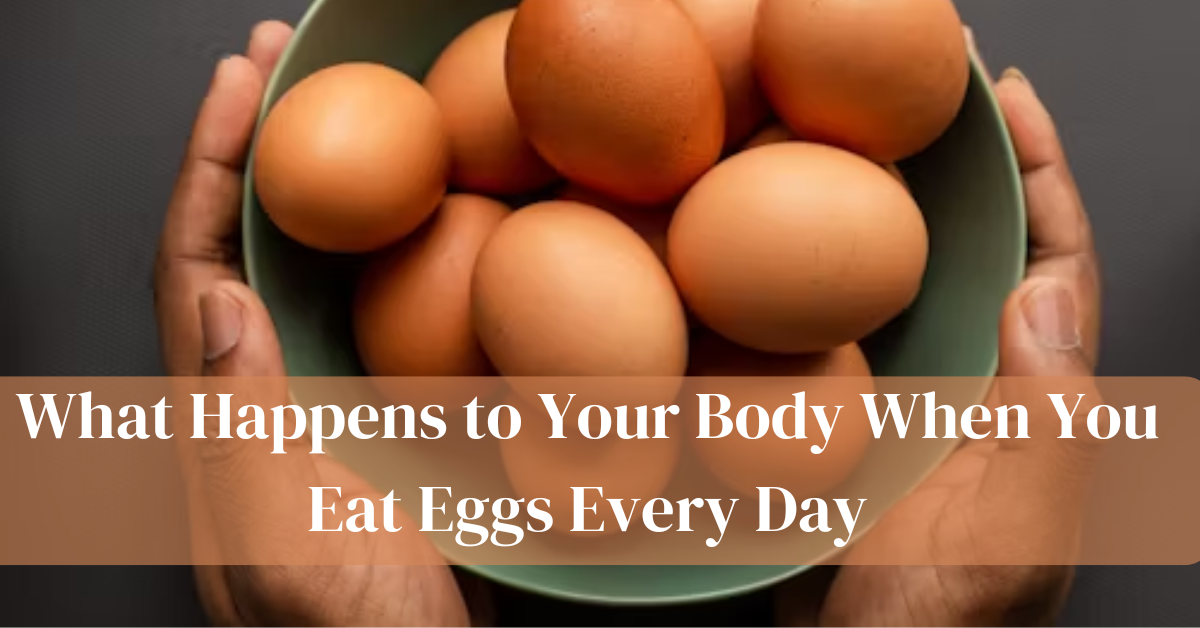Eggs have caused a lot of arguments over the years, even though they seem like a cheap and harmless way to get protein. Some people spread wrong information about how healthy they are, especially when low-fat diets were popular. But now, with diets like keto, which focus on fat, eggs are not as controversial.
But some people still wonder if eggs are actually good for you, especially if you eat them every day. So, what does science say about eating one egg a day in the long run?

Egg Nutrition Facts
According to the USDA, one large whole egg contains the following nutrition:
Calories: 70
Protein: 6 g
Total fat: 5 g
Saturated fat: 2 g
Carbohydrates: 0 g
Vitamin B12: 0.5 mcg
Vitamin D: 1.24 mcg
Choline: 169 mg
Health Benefits of Eggs
Feeling Full and Energized:
Eggs are packed with nutrients like vitamin B12, vitamin D, and choline, which help turn food into energy. The combination of protein and healthy fat in eggs keeps you feeling full for longer.
Healthier Hair and Skin:
Eggs contain vitamins B2, B5, and B12, which are important for maintaining healthy skin and hair. They also have amino acids that make skin more flexible and strengthen hair and nails.
Improved Cognitive Function: Choline in eggs supports brain function, including memory and mood regulation.
Better Vision:
Egg yolks contain lutein and zeaxanthin, which promote eye health and may reduce the risk of age-related eye diseases.
Stronger Bones:
Eggs are a source of vitamin D, which helps the body absorb calcium and maintain healthy bones.
Connection between EGG & Heart Health
Eating eggs might actually be good for your heart, even though they have cholesterol. A single egg contains a good amount of cholesterol, which is a bit high compared to what’s recommended for daily intake. But, surprisingly, eating cholesterol from food doesn’t really raise the cholesterol levels in your blood much. Some experts even say there’s not enough proof to set strict limits on how much cholesterol we should eat.
Now, about saturated fat – we do need some of it, but many people in the U.S. eat too much, and they don’t get enough of the healthy fats that are good for your heart. Also, foods high in saturated fat often come with other unhealthy things like added sugars. So, while having an egg a day is generally fine, it’s important to balance it out with lean proteins and plant-based foods instead of just eating a lot of red meat.
Eggs also have other good stuff for your heart like potassium, folate, and B vitamins. Some studies even suggest that having up to two eggs a day might make your heart healthier. But as always, it’s best to enjoy them in moderation, especially if you have heart issues.
The Bottom Line
Eggs are a cheap and really healthy source of protein, and they can give you some health perks if you eat them every day. They’re full of protein, vitamins, and other good stuff that keep you full and energized all day long.
But, keep in mind that they have a lot of saturated fat and cholesterol, especially in the yolk part. So, if you have heart problems or are worried about heart disease, it’s good to be careful about how many egg yolks you eat. Eating more egg whites instead can be a smart move.

